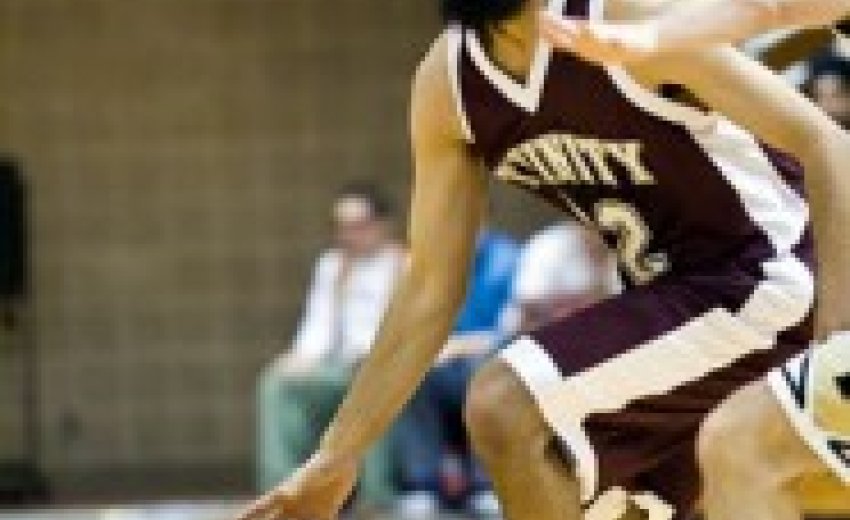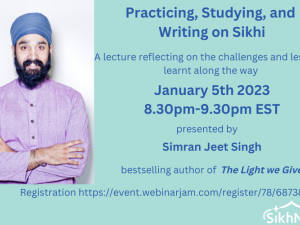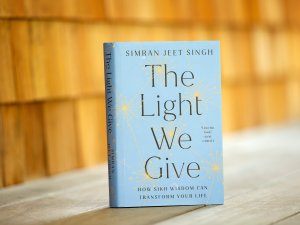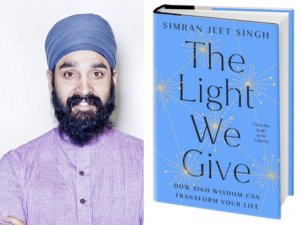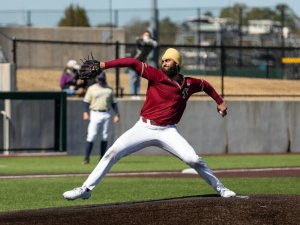Darsh Singh recalls the struggles and support that come with being the NCAA’s first turbaned Sikh American basketball player.
February 25, 2014: 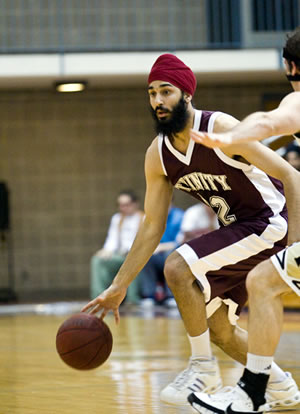 It was his first ever basketball game in high school, and like any other freshman, Darsh Preet Singh was anxious and excited to get the season underway. He looked to the sideline during warm-ups and noticed his coach arguing with the referees and the coach of the opposing team. Darsh walked over to see what was going on and overheard the opposing coach shout: “But he can’t play with that thing on his head! Show me in writing where it says he can play!”
It was his first ever basketball game in high school, and like any other freshman, Darsh Preet Singh was anxious and excited to get the season underway. He looked to the sideline during warm-ups and noticed his coach arguing with the referees and the coach of the opposing team. Darsh walked over to see what was going on and overheard the opposing coach shout: “But he can’t play with that thing on his head! Show me in writing where it says he can play!”
Darsh’s coach—Greg Maxwell—walked over to the bench, pulled out the small whiteboard on which he designed plays, and furiously scribbled: “HE CAN PLAY.” Coach Maxwell continued lobbying for Darsh’s right to wear a turban while playing until the opposing coach and the game referees agreed. Darsh was allowed to play that game.
Starting February 26, the Smithsonian Institution will be displaying the jersey of Singh, the first turbaned Sikh American to play basketball for an NCAA program. He spoke with us about his remarkable journey, including the challenges of traveling through the South and the relationships he has forged with teammates and coaches.
The Smithsonian is honoring you for being the first turbaned Sikh American to play NCAA basketball. Tell us what it feels like to be recognized for this achievement.
Honestly, all of this is still hard for me to believe. It still feels like a dream sometimes. In some ways, I feel like I haven’t done anything special. I just liked to play basketball and made the college team. It’s not that different than so many of my friends I grew up with. On the other hand, I realize that I have overcome a number of challenges and that this is a huge step for my community. From that perspective I feel really blessed to have had such amazing opportunities and experiences, and I feel especially grateful when young children thank me for providing inspiration and blazing the trail. That’s really special to me.
What was it like growing up and playing basketball in Texas?
Believe it or not, I don’t think I would be who I am today if it wasn’t for my Texas upbringing. I grew up in San Antonio with three brothers, and we are all huge Spurs fans. They had a real impact on us as kids, and we would play basketball any chance we could. We played in gyms, rec leagues, pickup games, school teams—whatever we could find. I hit an awkward growth spurt when I got to high school, so all of a sudden I was one of the taller and lankier kids in the school. Our team worked hard and won consistently, and although I was the team captain, I wasn’t sure if I wanted to play in college. I received admission to a great academic institution—Trinity University—and I ended up walking on to the team. I began my freshman year as a benchwarmer, at the bottom of the totem pole, and after three years of dedication and hard work, I played my senior year as the team’s co-captain. It was a really incredible experience.
Tell us more about playing at Trinity University. How did people treat you when they saw your turban and beard?
Trinity is part of the Southern Collegiate Athletic Conference, and we played most of our games in small towns in the South. Many people in those towns had never met a Sikh, and some people would shout hateful things at me during games. 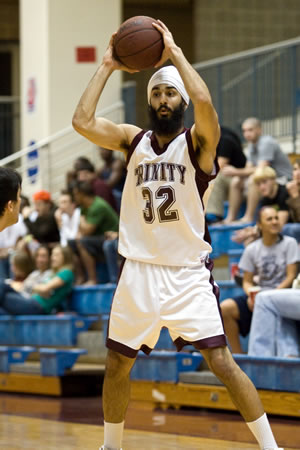 I remember them yelling things like “Go back to your country!” or “Cut your hair!” I wasn’t too affected by these comments because I’ve been dealing with them my whole life. The amazing thing for me was watching how quickly and passionately my teammates would jump to my defense.
I remember them yelling things like “Go back to your country!” or “Cut your hair!” I wasn’t too affected by these comments because I’ve been dealing with them my whole life. The amazing thing for me was watching how quickly and passionately my teammates would jump to my defense.
There are so many stories that come to my mind from our time on the road together. After a pre-game meal, two guys drove by in a truck and yelled four-letter words and ethnic slurs at me. I just ignored them and kept walking, but one of my most levelheaded teammates—Jay Riola—was so offended on my behalf that he shouted back at those guys. I was really touched that he cared enough to stand up for me. Another time, some guys drove by us and shouted: “Go back to your country, f*****. My teammate Andy did not appreciate the comment and chased after the truck. These moments meant a lot to me because it showed me that my teammates had my back. It really was like family, and these are still some of the strongest relationships I have today.
That sounds incredible. Did you always have that kind of support around you? Or was that a somewhat exceptional case?
I feel really fortunate that I have always had this support around me. My parents are amazingly supportive, and my mom actually made it to every single one of my games. My family and friends were always encouraging, and my teammates never looked at me as being any different or any less. If anything, my teammates have always given me additional respect when they get to know me as a person and see firsthand how I deal with the various challenges that come my way. I vividly remember how outraged my teammates were when they found out I had to get a formal waiver from the NCAA that allowed me to play college basketball. It really gave me a sense of comfort knowing that they cared about me as a person and teammate and that they wanted to have my back.
I was also really lucky to have a special coach at Trinity, Pat Cunningham, who taught me what was important in life, not just basketball. I’ve learned so much about work ethic, caring for others, working on teams, and communicating effectively. I will always remember him as my favorite professor in college. Most importantly, Coach Cunningham helped me realize that being able to play basketball was a real blessing and privilege in the context of everything else that goes on in the world.
Image courtesy of Ryan Fung.
